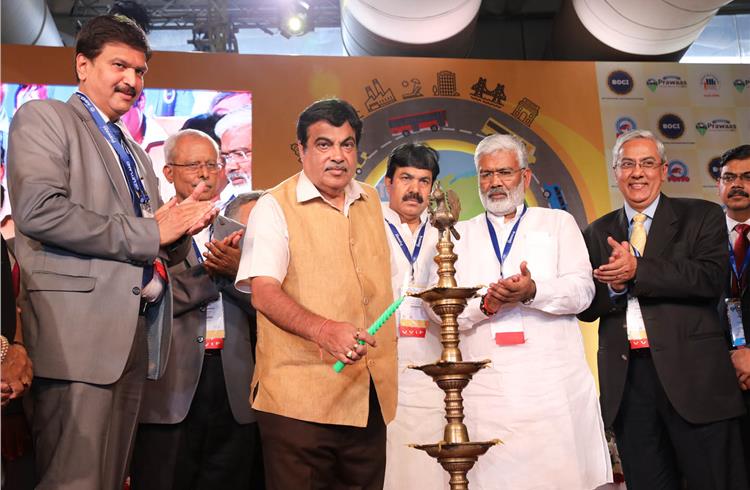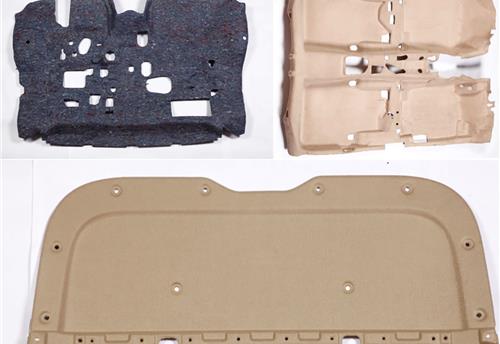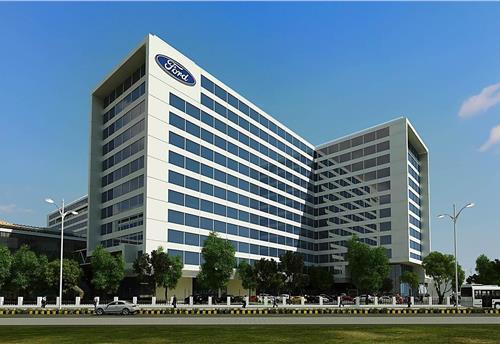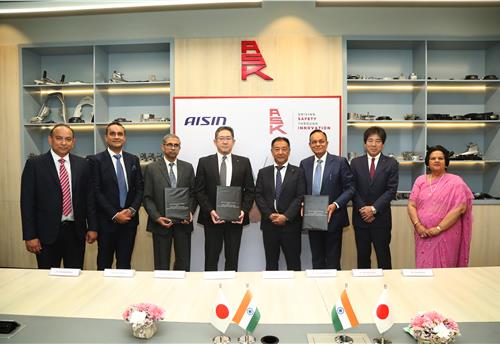Government plans new steps to enhance road safety; flags down diesel vehicles
Transport minister says 2,000 new driving and training centres will be opened in the country, urges bus operators to opt for cleaner energy, but comes down strongly against diesel vehicles.
India is on top of the list of road fatalities globally. The Central government is set to take some new steps aimed at enhancing safety levels and mobility.
Speaking at the inauguration of a transport trade fair in Mumbai today, Nitin Gadkari, Minister for Transport, Highways & Shipping, government of India, said, “There are a lot of issues in the transport sector. The biggest challenge is to improve safety. In India each year 500,000 accidents take 300,000 lives. To address this issue, the new Motor Vehicle Act has been introduced which will be cleared soon in the Rajya Sabha.”
Gadkari spoke about how he wants to improve the transport system by focusing on e-governance, thereby making it time-bound, transparent and corruption-free. He announced that Rs 11,000 crore has been set aside to improve safety on highways by addressing ‘black’ spots that will help reduce fatalities by 50 percent.
He also said that 2,000 new driving and training centres will be opened in the country, a move aimed at training people and addressing the shortage of 22 lakh drivers in India. The government will provide the necessary financial, infrastructure and other needs for setting up this centres, which will be opened in rural and tribal areas. These centres will be equipped with a testing track, computer testing and individuals who pass the test will get their licenses in 3 days. If the RTO officer fails to issue the license, he will be penalised.
The government also has plans to convert 175,000 highways to national highways, along with increasing the current 5,000 NH in India to 22,000.
Gadkari shared his views after inaugurating the first India International Bus and Car Travel Show ‘Prawas 2017’, organised by the Bus Operator Confederation of India (BOCI) in Mumbai. The three-day event (July 28-30) aims to bring all stakeholders to promote safe and smart public transport in India, sees good participation from leading OEMs, bus-chassis manufacturers, tour operators and transport unions, among others.
Highways speed limit to be raised to 120kph
Addressing a comment from a speaker on India’s current speed limit on highways, the transport minister stated that the speed limit will be increased from the current 80kph to 120kph in the next three days. He appealed to OEMs to incorporate better technology and safety and ensure lives are not being risked. He also pushed the cause of indigenous technology. “We will promote and give necessary support to electric, ethanol, bio-diesel, bio-gas, etc (cleaner fuels) buses which are manufactured in India. Don’t expect any subsidy or support for parts or vehicles which are being imported in the country. We will support indigenous technology.”
Gadkari though came down strongly against diesel vehicles, “Main diesel walon ki band bajana chalu karunga. Agar aap badalna chahte ho toh saath lekar chalunga, aur nahin chahte ho toh ghasit ke chalunga, (I will come hard on diesel vehicles, if you want to change then I will lead you, but if you don’t want to change, I will drag you to change),” He said he was ready to support all stakeholders who would opt for cleaner energy.
Urging bus operators to take to greener technologies, Gadkari said the government is working on introducing a double-decker electric bus service in Mumbai and Pune, while also building an electric lane between the Mumbai and Delhi highway. He added that work is also underway on second-generation ethanol and in advanced stages with 25 manufacturers in the country.
He said he would like to see more of buses on Indian roads, which would help cut pollution by private vehicles. Currently 16 lakh buses ply and the aim is 40 lakh.
Bus makers gear up for change
With the inaugural session seeing prominent industry and government personnel speaking on a range of issues, including green mobility, Girish Wagh, head – Commercial Vehicle Business Unit, Tata Motors, said, “We are already in advanced talks with the Maharashtra government to introduce electric buses. The first Tata electric bus will be in Mumbai.”

Akash Passey, senior VP, business region international, Volvo Bus Corporation, Sweden, said that India, despite being the second largest country in terms of volumes of buses, still has a poor ratio of buses per people. In the past decade, there has been a significant improvement in public-private partnership and a a shift from being just a chassis manufacturing country to OEMs building complete buses.
RELATED ARTICLES
Uniproducts India targets 15% growth till FY2027, eyes new EV OEMs for NVH parts
The Noida-headquartered company, which is a leading manufacturer of roof liners, floor carpets, sound insulation materia...
Ford to build more EV software capability at Chennai tech hub
Ford Business Solutions India, which currently employs 12,000 personnel set to add 3,000 more; Ford, which is known to b...
ASK Automotive to set up JV with Aisin to sell aftermarket parts for cars
Ask Automotive will have 51% of the equity of the joint venture to be set up with Aisin Asia (Thailand) Company and Aisi...





 28 Jul 2017
28 Jul 2017
 4942 Views
4942 Views





 Autocar Pro News Desk
Autocar Pro News Desk




